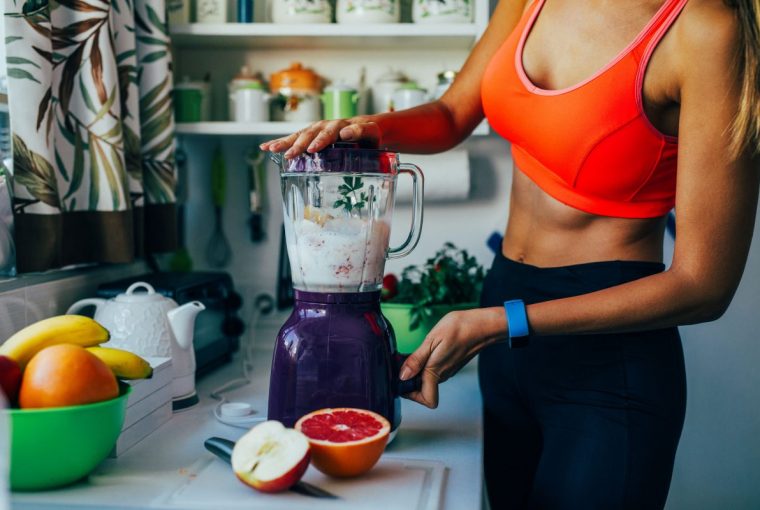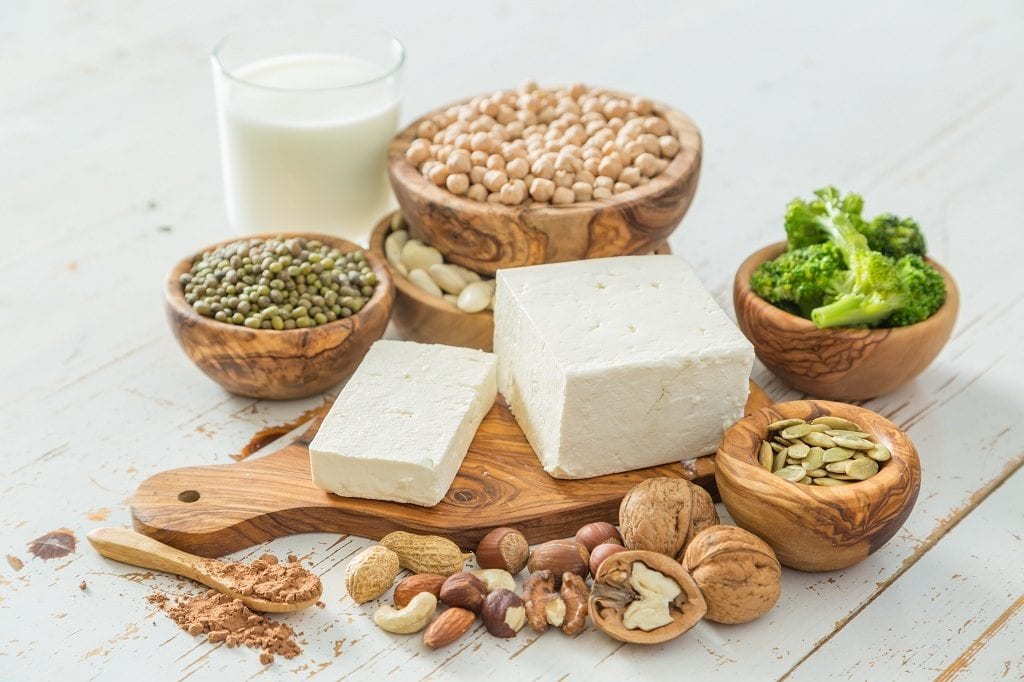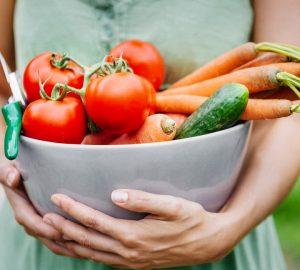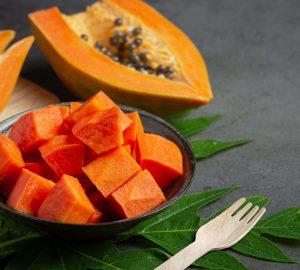A combination of diet and exercise is considered ideal for building muscle mass. Very often people only concentrate on body exertion and ignore the consumption of those foods that can complement an exercise regime.
It must be kept in mind that the intake of appropriate dietary foods is an important factor during the muscle-building process because the body needs nourishment from external sources for energy production to enable you to work-out. There are several muscle building foods for bodybuilders, and they can easily be incorporated into your lifestyle.
Refer to the following information for learning about the various foods that would be beneficial to include in your diet for muscle development. However, be sure to discuss any lifestyle changes with your physician, trainer, or dietician beforehand.
1. Protein-Rich Foods
The body requires around 0.8 grams of protein for every pound of your body weight per day. Anybody weighing about 150 pounds needs to consume protein within the range of 110-120 grams on a daily basis for consistent muscle gain.
Depending on your body weight, you must calculate your body’s requirement of protein per day. Some sources of proteins are:
- Dairy foods such as yogurt, milk, cottage cheese, and cheese. Grating is the best way.
- Whole eggs
- Lean-based red meats like bison, lamb, pork, venison, and beef
- Poultry-based breast products including duck, chicken, and turkey
- Fish such as mackerel, swordfish, tuna, salmon, trout, and bass
- Sushi dishes rate high in protein content and their inclusion in the diet is advisable for weightlifters. Use the best knife for sushi to make your meal preparation is easier.
These foods constitute as nutritional foods for these groups of people because they also contain minerals, vitamins, omega fats, and fish oil.
2. Vegetable-Based Proteins
Normally, foods that are included in this category of whole proteins come from animal sources like milk, meat, cheese, eggs, fish and other animal-based foods. Here, it is useful to know that there are various plant based sources of complete proteins that vegetarians can relish in. These include hemp seeds, chia, and soy, legume-based dishes like beans along with rice, buckwheat, and quinoa.
3. Foods Rating High in Protein Digestibility Corrected Amino Acid Score (PDCAAS)
This measure provides information on the effectiveness of the metabolism of the varied proteins that are consumed and is determined by the solubility ratio of the amino acids that comprise the proteins. On a scale of 0-1, the rating of 0 is at the lower-end, and the rating of 1 is of the higher-end. The following information gives a breakdown of the foods by their PDCAAS score.
- Whole wheat: 0.4
- Soybeans, beef: 0.9
- Soy-based proteins, casein, whey, and eggs: 1.0
- Legumes, vegetables, fruits, chickpeas, and black beans: 0.7
- Peanuts, derivatives, and cereals: 0.5
4. Carbohydrates
The inclusion of carbohydrates in your daily diet is recommended for the body to have energy reserves for fueling your workout sessions. If these food varieties are eliminated from the diet, the body will not have sufficient energy and may result in deterioration of the muscles.
For achieving your muscle-gaining objectives, it is mandatory for your diet to consist of 40-60% of foods that are rich in carbohydrates or around 1500 calories everyday.
Complex carbohydrates are recommended to add to the diet because they breakdown slowly and are known to release energy at a slow rate. These foods rate low in the low-glycemic index and serve as a healthier choice than the simple carbs, which metabolize rapidly and not considered as healthy.
The complex varieties of carbohydrates are advisable to consume, post-exertion, or you can also eat them for breakfast. Some complex carbohydrate foods that are beneficial for consumption as part of the muscle-building measures are whole-wheat pasta, whole-grained rye bread, rolled varieties of oats, sweet potatoes, brown-colored basmati rice, and quinoa.
5. Healthy Fats
There are healthy and unhealthy fats. Under the category of healthy fats, the intake of polyunsaturated and monounsaturated fats are considered nutritious. Your diet should consist of fats between the 25-30% ranges.
Some fats that are advised to add to the diet are flaxseeds; soy-based foods like soy milk and tofu; pumpkin seeds; nuts; fish; oils with the inclusion of canola oil, olive oil, avocado oil, sunflower oil, and peanut oil.
Additional Tips
For gaining muscle, there are some tips that have been provided for being successful in your endeavor.
- The intake of trans-fats and saturated fats must be restricted because their intake is regarded as unhealthy. It is advised to limit the consumption of foods such as fried foods, packaged foods, candies, ice-creams, vegetable-based shortening foodstuff, fat-rich meats, margarine, and lard.
- The inclusion of fibrous foods in the diet is important because they facilitate the removal of toxic, waste components from the body and are useful for detoxification purposes. Also, these nutrients aid the digestion of food, while ensuring the passage of food through the digestive tract in an uninterrupted manner. These factors help in improving the body functioning and enhancing your athletic abilities.
- Consuming salty foods in nominal quantities should be practiced. It may be kept in mind that excessive salt intake causes hypertension, but, also remember that sodium is lost due to sweating. Sodium-rich foods facilitate the contraction of muscles, and their dietary intake can benefit those seeking to develop their muscles. You can also opt to substitute table salt with magnesium or potassium salts for lowering sodium amounts in the body. Also, people ailing from high blood pressure or hypertension can benefit by reducing their sodium intake.
In the above-listed details, we have studied some foods that can be helpful during the muscle-gaining expeditions. A diet rich in proteins, moderate in carbohydrates, and low in fats is the general recommendation for the bodybuilders. Additionally, the intake of healthy fats and not the unhealthy versions are recommended.
There are also various plant-based protein-rich foods that vegetarians can include in their diet for raising their protein intake. Moreover, the complex carbs must be chosen over the simple ones.
————–
Susan Conley is the host of http://www.cookthestone.com. She has a passion for cooking and blogging. Sharing useful information with her readers fulfills her life and she hopes you find her work to be helpful.





